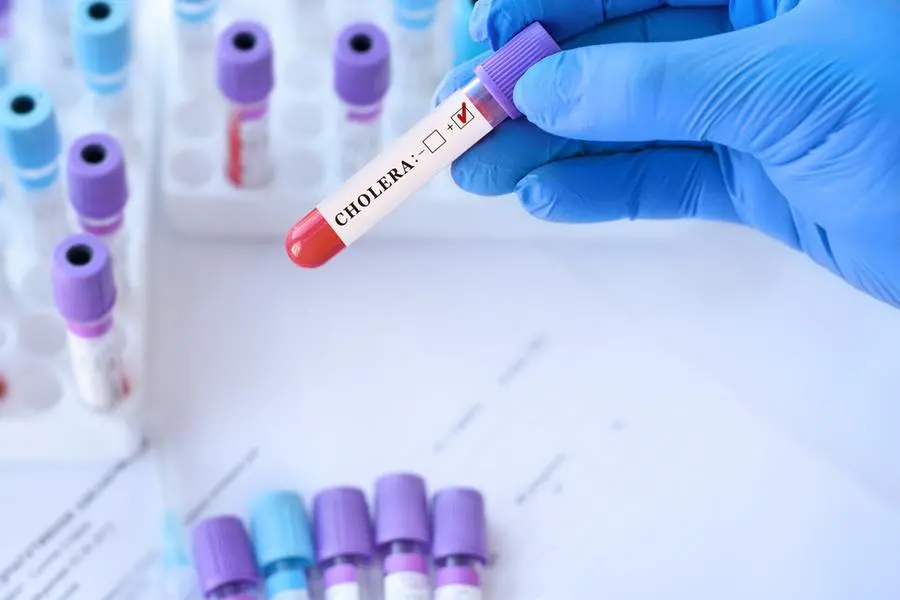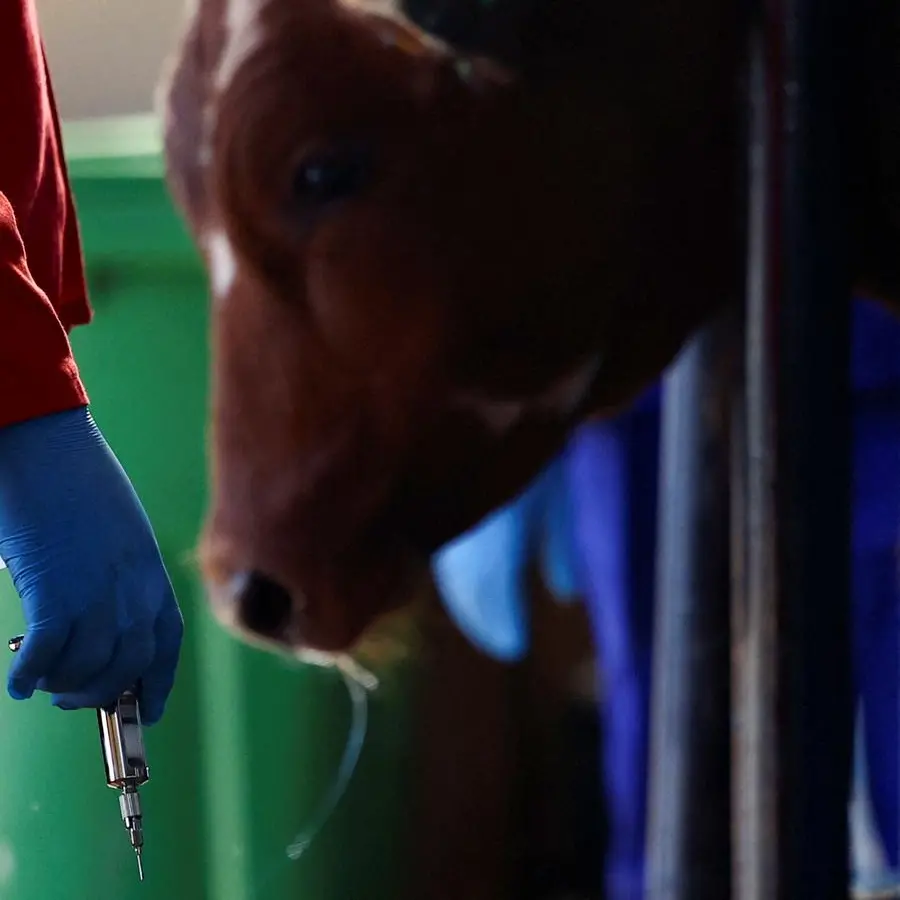PHOTO
So far this year, more than 342,000 cases and 2,400 deaths from cholera have been recorded, the Director General of the World Health Organisation (WHO), Dr. Tedros Ghebreyesus, has disclosed.
Tedros, who made this disclosure during a media briefing on global health issues on Wednesday, said the year 2023 saw an increase in both cases and deaths, with the number of reported deaths last increasing by 71 per cent compared to the year 2022, while the number of cases increased by 13 per cent.
The cases and deaths, he said, spread across 22 countries this year, is a continuation of a global crisis that has caused a severe shortage of cholera vaccines between 2021 and 2023, with more doses requested for outbreak response in the past four years than the entire previous decade.
In terms of geographical distribution of cholera, while the cases from the Middle East and Asia declined by a third, cases from Africa more than doubled.
The WHO attributed the rise in cholera outbreaks last year to conflict, climate change, a lack of safe water and sanitation, poverty, and displacement.
He said the fact that cholera was a global crisis is evident as only about 36 million doses of cholera vaccines were produced last year, a number that is only half the amount requested by 14 affected countries.
To be able to distribute the limited vaccines, Tedros said the international coordinating group managing emergency vaccine supplies suspended giving the standard vaccination regime and adopted a single-dose approach to be able to reach more people with the limited supplies.
While noting that there was currently only one manufacturer of cholera vaccines, Tedros tasked manufacturers planning to enter the cholera vaccine production market to accelerate their efforts and make them at affordable prices.
Though noting that vaccination was important, Tedros said the lasting solution to prevent cholera outbreaks is safe drinking, sanitation, and hygiene.
Tedros stressed: “New data for 2023 shows an increase in both cases and deaths. The number of reported deaths from cholera last year increased by 71 per cent compared to 2022, and the number of cases increased by 13 per cent. Cholera killed 4,000 people in a year; this is a disease that is preventable and easily treatable.”
“Conflict, climate change, safe water and sanitation, poverty, and displacement all contributed to the rise in cholera outbreaks last year. The geographical distribution of cholera changed significantly last year, with cases from the Middle East and Asia declining by a third and cases from Africa more than doubling. Preliminary data shows that the global cholera crisis continues into 2024, with 22 countries reporting active outbreaks.
“So far, this year, more than 342,000 cases and 2,400 deaths have been reported to WHO from all regions. The global cholera crisis has caused a severe shortage of cholera vaccines; between 2021 and 2023, more doses were requested for outbreak response than the entire previous decade.”
“About 36 million doses were produced last year, only half the amount requested by 14 affected countries. Since October 2022, the international coordinating group that manages emergency vaccine supplies has suspended the standard vaccination regime, adapting a single-dose approach to reach and protect more people with limited supplies.
“There is currently only one manufacturer of cholera vaccines, and we thank them for the work they are doing to expand production. We urge other manufacturers planning to enter the market to accelerate their efforts and to make those available at affordable prices. While vaccination is an important tool, safe drinking, sanitation, and hygiene remain the only long-term and sustainable solution to ending cholera outbreaks and preventing future ones.”
The briefing saw Tedros disclose that the WHO was publishing a new framework to guide member states in studies to be done to understand the origin of pathogens with epidemic and pandemic potential.
He noted that the framework, which outlines six areas in which scientific investigations are needed to be conducted by WHO member states to identify the origins of outbreaks and the emergence of new pathogens, would have been invaluable when COVID-19 struck.
While acknowledging ongoing investigations by the Scientific Advisory Group for the Origins of Novel Pathogens (SAGO), Tedros said the origins of COVID-19 remained largely unknown till date.
He said the WHO still needed the cooperation of senior Chinese leaders to provide data on work done at laboratories in Wuhan, China, to be able to know the origin of COVID-19.
Tedros said: “We still do not know how the COVID-19 pandemic began, and unfortunately, the work to understand its origins remains unfinished. SAGO is now finalising its independent assessment of how the COVID-19 pandemic began.
“As I have said many times, including to senior Chinese leaders, China’s cooperation is absolutely critical to that process. That includes information on the seafood market, the various known and suspected cases of COVID-19, and the work done at laboratories in Wuhan, China. Without this information, none of us are able to rule any hypotheses out until or unless China shares its data. The origins of COVID-19 will largely remain unknown.
“WHO is publishing a new framework to guide our member states in the studies that need to be performed to understand the origins of pathogens with epidemic and pandemic potential. Understanding when, where, how, and why outbreaks, epidemics, and pandemics start is extremely challenging.
“The framework outlines six areas in which scientific investigations are needed to identify the origins of outbreaks: early investigations, human studies, animal-human interface studies, environmental and ecological studies, genomic and phlogenetic studies, and laboratory and biosafety assessments. It stresses the importance of timely, comprehensive scientific investigations of building research capacity and the necessity of sharing results rapidly when they become available.
“This paperwork should be used by member states each time a new pathogen emerges. It would have been useful to implement when COVID-19 struck. However, even with the framework in place, it requires the cooperation, collaboration, and transparency of all member states.”
Copyright © 2022 Nigerian Tribune Provided by SyndiGate Media Inc. (Syndigate.info).





















